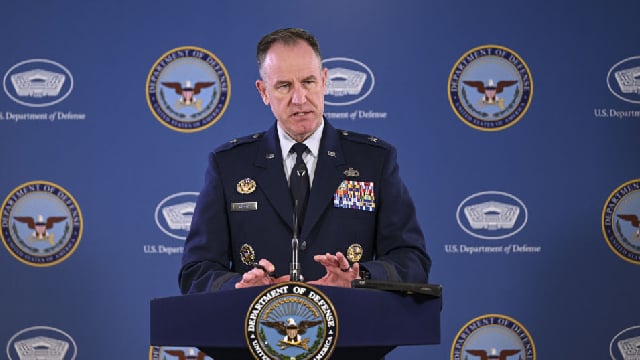
The United States will not lift restrictions for Ukraine on strikes with long-range ATACMS missiles on the territory of the Russian Federation, since this, according to the Pentagon, could lead to a wider “escalation”, which will lead to expansion of the war or “unpredictable consequences”.
Pentagon spokesman, Major General Pat Ryder said this in an interview with Voice of America.
US ban on firing from ATACMS deep into the Russian Federation
Journalists asked him whether the United States would change its policy regarding allowing strikes by the Ukrainian Armed Forces with long-range weapons, such as ATACMS, deep into Russian territory.
Now watching
In response, Ryder said that America continues “on a very regular basis” talk with Ukrainian partners about their needs when it comes to protecting the sovereign territory of Ukraine and returning occupied territories.
A Pentagon representative recalled that the United States recently granted Ukraine permission to fire some of its American weapons into Russian territory for return fire and defensive strikes.
— If the Russians form troops or fire artillery or planes across the border, then we recognized this fact and gave permission to the Ukrainians. But our policy regarding long-range strikes has not changed. I think it's important to understand here that we don't want to see unintended consequences, escalation that could turn this conflict into a broader one that goes beyond Ukraine, — said Ryder.
According to a representative of the US Department of Defense, “everyone needs to take this into account and take it very seriously”, however, he added that the United States does not underestimate the threats posed by the Russian Federation’s actions towards Ukraine.
Fears of escalation
For clarification from a journalist about how this can increase escalation in the war, when no escalation occurred after the United States allowed Ukraine to attack the Russian border with American weapons.
— I think that in this case we are talking about common sense: if you are fired upon across the border or if the Russians are forming troops to carry out attacks on, say, Kharkov. I think it makes sense to give the Ukrainians the opportunity to shoot back, — he said.
At the same time, Ryder adds, it is necessary to consider both “secondary and tertiary consequences”, if we are talking about “potential escalation”. Thus, if targets deep within Russian territory are subject to attacks that “will not necessarily have a strategic impact or may have unpredictable consequences in terms of escalation”.
According to him, the United States is not at war with Russia, and therefore does not seek conflict, but at the same time supports Ukraine’s right to self-defense.
He summarized that Washington will continue to hold active conversations with Kiev, but now the policy on this matter has not changed.

